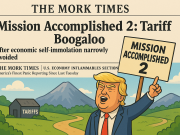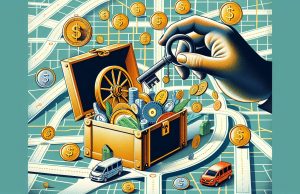As we stand at the precipice of a new era in the workforce, the incessant drumbeat of technological progress and globalization echoes through the halls of businesses worldwide, bringing with it a transformative wave that redefines what it means to be ‘work-ready’. The Future of Work is not a distant concept looming on the horizon; it is here, and it demands an immediate and strategic response to the upskilling imperative – a clarion call to both employees and employers that lifelong learning is no longer just an asset but a requirement.
The Current Upskilling Landscape
The landscape of job-related education is a patchwork of ambition, innovation, and stark disparities. While technology has simplified access to information, creating myriad opportunities for self-guided learning, the formal mechanisms for upskilling often remain expensive, inaccessible, or misaligned with industry needs. Workers eager to enhance their skills collide with barriers such as cost, time, and the uncertainty of tangible career benefits.
Yet, the stakes of inaction are high. With artificial intelligence, robotics, and other digital tools reshaping industries, the skills gap widens, and the absence of adequate upskilling threatens not just individual careers but the very fabric of our economies.
The Role of Stakeholders
Employers, educational institutions, and policymakers each carry a torch in illuminating the path forward. Employers must recognize that investing in their workforce’s continual development is not just altruism but enlightened self-interest. By fostering a culture of learning, they create more adaptable, innovative teams and also enhance their attractiveness to prospective talent.
Educational institutions, for their part, must recalibrate their offerings to match the cadence of change in the labor market. The addition of flexible learning options, micro-credentials, and partnerships with industry can bridge the gap between academia and the practical demands of the workplace.
Policymakers wield significant influence in shaping a learning-friendly ecosystem through funding, incentives, and policies that encourage companies to invest in worker development and that support individuals in pursuing lifelong education.
Success Stories and the Positive Ripple Effects
The compelling case for upskilling is not merely theoretical. Success stories abound, highlighting individuals who, through reskilling, have unlocked promotions, transitioned to more fulfilling careers, or even averted the threat of obsolescence. Companies that have embraced upskilling report improved employee engagement, innovation, and the capacity to tap into new markets, driving broader economic growth.
The Hurdles of a Static Workforce
Conversely, a workforce that stalls in the face of change courts disaster. Skills atrophy, morale plummets, and businesses find themselves outpaced by nimbler competitors. The broader economy suffers as well, with reduced productivity and stagnating wages.
Your Upskilling Journey
As we hurtle towards an ever-evolving employment landscape, the individual’s role in their upskilling journey cannot be overstated. In an era where change is the only constant, taking charge of one’s learning trajectory is both empowering and necessary. Whether through formal education, online courses, or simply a commitment to stay abreast of industry trends, every step toward skill enhancement is a step toward future-proofing your career.
In the pursuit of continuous improvement, we not only ready ourselves for the jobs of tomorrow but also contribute to a resilient, dynamic economy. The Future of Work awaits, and the upskilling imperative is your ticket to ride into a world brimming with potential and opportunities.

























